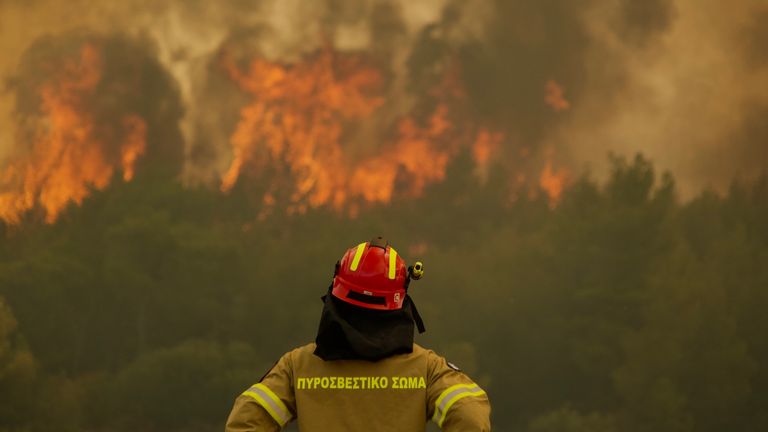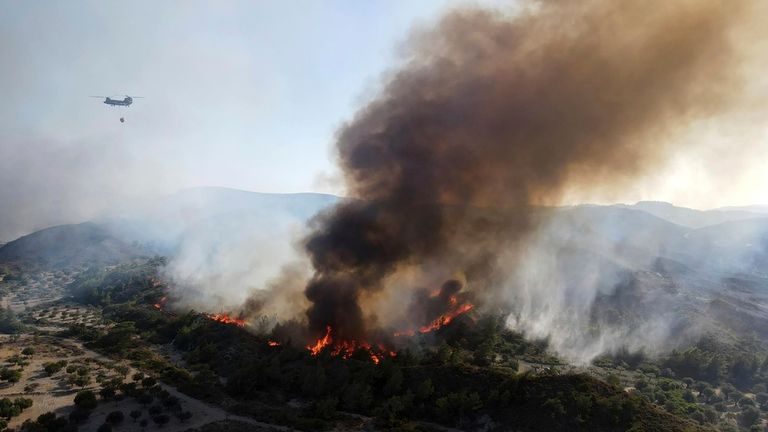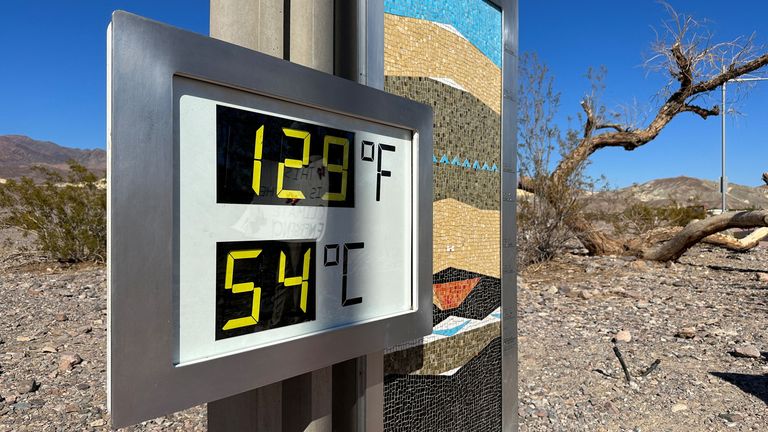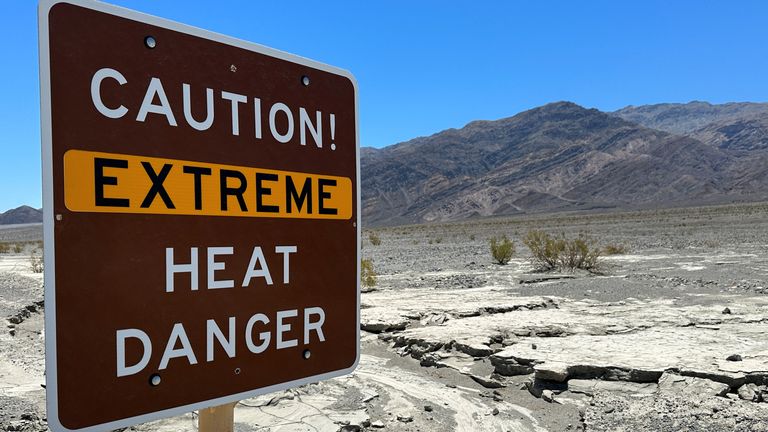
Iran has announced a nationwide shutdown due to “unprecedented heat”.
A two-day national holiday will start tomorrow with governmental offices, banks and schools all closing.
The health ministry said hospitals will be on high alert, as it warned the elderly and people with health conditions to stay indoors.
Many cities and towns across Iran have sweltered for days in heat as high as 40C (104F), with the mercury rising to 50C (122F) in the southwest city of Ahvaz.
The city also registered Iran’s hottest-ever temperature in 2022 of 53C (128F).
This year has already seen heat records broken across the globe, with devastating consequences.
Earth experienced its hottest day in modern history on 4 July, when the average global temperature reached 17.18C (62.9F).
The UK recorded its hottest June since records began in 1884.
Back-to-back heatwaves brought temperatures in the 40s to parts of Europe last month, fanning out-of-control wildfires burning across parts of Greece, Sicily, Portugal and Croatia.
Blazes on Rhodes forced 19,000 people to be evacuated from the Greek resort island, the country’s largest-ever evacuation because of a wildfire.
In the US, Texas and the south has sweltered under an intense “heat dome”.
Last month, temperatures in Death Valley approached the global record of 56.7C (134F).
Soaring heat in Mexico has been blamed for the deaths of almost 112 people since March, while almost 170 people have been killed in India.
Read more:
Find out the latest forecast for your area
Why Venice could feature on a danger list of heritage sites
Wildfire crosses US border into Canada
China has also recorded the highest number of days where the temperature exceeded 35C (95F) over a six-month period since records began. North Africa has also seen temperatures above 50C (95F).
Even Antarctica, currently in its winter, registered anomalously high temperatures. Ukraine’s Vernadsky Research Base in the white continent’s Argentine Islands recently broke its July temperature record with a 8.7C (47.6F) reading.
A study from the World Weather Attribution (WWA) found this year’s high temperatures are no longer unusual.
It said heatwaves in Europe and North America would have been virtually impossible without climate change.






